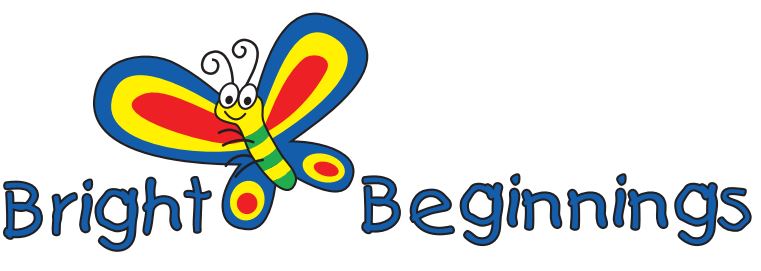Playgroup
Our Playgroup is a contiuation of the Parent/Toddler classes. It allows our children to attend on their own 3 times a week. These classes prepare the child for the wide world of nursery school by teaching them independence to become used to a school environment without the parent or caregiver attending. Much that is experienced in our Playgroup is learnt through play
The Aim of Bright Beginning Playgroup

WHEN YOUR CHILD PLAYS IN THE SAND:
- He finds it soothing to bury his hands in sand and pour sand in and out of cups, buckets and other containers.
- He is able to relax with these types of media and center his attention on a task.
- He has an opportunity to play alone and not have to compete with other children as with some activities. This is especially important to a child who has trouble getting along with others.
- He has a great opportunity to learn about size and measurement, experimenting with measuring spoons, cups and different sized containers.
- He is not concerned with a final product so he does not find it frustrating.

WHEN YOUR CHILD WORKS WITH PUZZLES:
- She has an opportunity to work alone or together with other children
- She gains satisfaction in completing a puzzle and builds her self-confidence.
- She has an opportunity to improve her hand eye coordination.
- She will use skills learned in doing puzzles later when she learns to read-putting letters to sounds, making words with letters, and making stories with words.

WHEN YOUR CHILD LISTENS TO STORIES OR LOOKS AT BOOKS:
- He learns to listen.
- He has an opportunity to increase his vocabulary by hearing new words read to him.
- He learns about different concepts, people and places.
- He learns to enjoy books and reading.
- His mind is stimulated, visualizing the things he is hearing about.

WHEN YOUR CHILD COOKS:
- She learns to follow directions.
- She stimulates and uses all five senses.
- She learns to recognize colors and shapes from different kinds of foods and kitchen utensils.
- She has an opportunity to use different tools and equipment to improve small muscle coordination.

WHEN YOUR CHILD LISTENS TO MUSIC, SINGS OR DANCES:
- He learns to appreciate music from different countries, cultures, and time periods.
- He learns to express himself and his ideas.
- He increases his vocabulary.
- He gains satisfaction from participating in an activity that can be fun, physical and/or enriching.

WHEN YOUR CHILD USES MANIPULATIVE ACTIVITIES:
- She explores new concepts, practices emerging skills, and reinforces skills already mastered.
- She develops fine motor practice.
- She learns about classifying, sorting, predicting, problem solving, and analyzing results.
- She develops her knowledge of the world around her using real objects and concrete examples.
- She learns how to learn.
